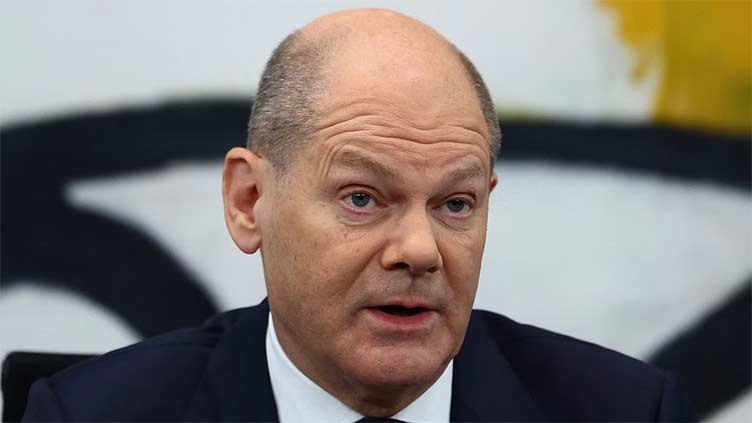Germany's Scholz says want to deepen relations with India, meets Modi

World
"India and Germany have very good relations and want to deepen them," Scholz said on Twitter.
NEW DELHI/BERLIN, (Reuters) - German Chancellor Olaf Scholz said on Saturday said he wanted to deepen his nation's relationship with India ahead of his meeting with Prime Minister Narendra Modi in New Delhi.
"India and Germany have very good relations and want to deepen them. That will be the topic of our talks and, importantly, peace in the world," Scholz said on Twitter.
Scholz, meeting Modi for the fourth time, landed in India a day after the first anniversary of Ukraine war, highlighting Delhi's growing importance to Western powers seeking backing for their opposition to Russia's invasion.
Scholz is also set to push hard for a $5.2 billion deal to sell India six conventional submarines, though this latest attempt by a Western military manufacturing power to wean New Delhi away from its dependence on Russia for military hardware is not expected to yield an immediate result.
Germany's pivot to India is particularly stark, given that close economic ties to China, the main buyer of German machine tools, and Russia, its key energy supplier, have played in German prosperity over the past 15 years.
While one of the stated goals of the lightning trip is to improve economic ties, officials are mindful of the need to press what will soon be the world's most populous country into opposing Russia's invasion, even if a severing of India's economic ties with Moscow is not on the table.
"Every region has its own view," a German official said. "Every region has its own way of doing diplomacy. In our own talks, we are agreed who is the aggressor and who it he victim."
OIL PURCHASES
Indian Prime Minister Narendra Modi's government has not openly criticised Moscow for the invasion and instead called for dialogue and diplomacy to end the war. India has also sharply raised its purchases of oil from Russia, its biggest supplier of defence hardware, although prices have fallen.
"They pay less, the Indians like that. Russia gets less, and we like that," said a German government official, adding it was impossible to expect other countries to apply sanctions as the European Union and the United States do.
Many in the Global South see Western complaints about the invasion as hypocrisy, given their long history of military interventions around the world, and fear disrupted supply chains and inflation will cause hunger and famine.
Scholz last met Modi at a June summit of the Group of Seven industrial powers, to which he invited the Indian leader as part of outreach efforts that have become more urgent as concerns grow that China may step up its political support for Russia.
While China is one of Germany's most important trading partners, the invasion brought home to many in Germany's business community the lack of diversification in the supply chains on which they rely, lending new urgency to efforts to boost exposure to a huge potential market.
Some 1,800 German companies are present in India. Scholz is travelling with a business delegation in a hope of growing that number, with a focus on investment in green technology.
Despite the interest, regulation and trade barriers make India a tough market for German companies to crack, as is shown by the absence of any of Germany's major carmakers from the accompanying delegation.

